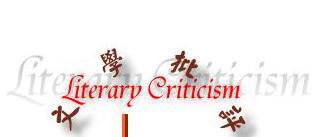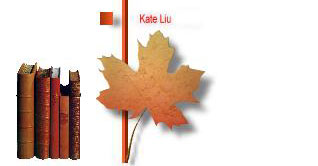| Literary Criticism: Form and Race (Chinese
version中文版)
"Ah--ha, that's great! I love it." 「本詩意境深遠,耐人尋味﹒」
Are these examples of literary criticism? No. Literary criticism is
different from Literary appeciation: the latter involves expressions of
your feelings and pleasure in reading, likes and dislikes of a text, while
the former, as a formal training for literature majors, requires both
literary sensibility and critical thinking. In other words, literary
criticism involves conscious use of methods, active engagement in critical
issues and rigorous development of a logical argument.
(For further details on what literary criticism is, please view this
animation.
http://www.eng.fju.edu.tw/Literary_Criticism/video/animation/lit1.swf)
In this course, therefore, we will try to achieve three goals:
1. to improve our sensibility to literary elements;
2. to enhance our abilities in responding critically to the issues
raised by the chosen literary or cultural texts;
3. with the help of some critical theories, to better relate these
issues to our society and our selves.
In order to have a sense of focus, we will choose form and race
as our major
topics. The questions we discuss will be:
1. Literary Form:
-
How does a text produce its meanings and unity?
-
Is it possible to break its textual unity? How is the text influenced by
its socio-historical background?
2. From Literary Form to Social Forms and Cultural Contexts: We will use
different theories to help us engage in different kinds of contexts:
-
Structuralism 結構主義-- Language systems (narrative systems and systems
of signs)
-
Post-Structuralism 後結構主義- -textualized society
-
Post-Modernism 對後現代主義 --high-tech society and that of international
capitalism
-
Post-Colonialism 後殖民主義 --Colonial and Anti-Colonial histories
3. From social forms to our self-identity -- The above-mentioned theories
might sound abstract to you. They should get more concrete as we discuss
more texts from these perspectives; as we relate both texts and theories
to our own world. And then we ask:
-
How do we receive or resist different systems of languages and meanings?
-
Does English literature support colonialism? Do does teaching of Eng Lit.
do it?
-
Do Taiwanese cultures and literature resist the different kinds of colonialism
imposed on us?
|









